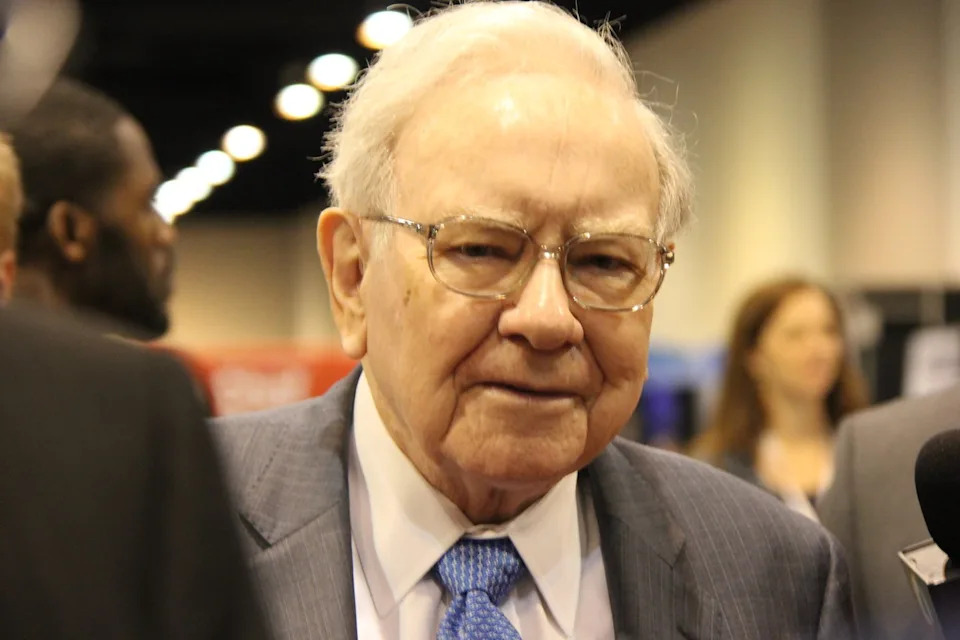Key Points
There's arguably no announcement that's packed with more information and clues about the stock market and the companies powering it higher or lower than quarterly Form 13F filings with the Securities and Exchange Commission (SEC).
13Fs are filed no later than 45 calendar days following the end to a quarter by institutional investors with at least $100 million in assets under management. These filings tell investors precisely which stocks and exchange-traded funds (ETFs) Wall Street's most prominent money managers purchased and sold in the latest quarter (the first quarter, in this case).
May 15 marked the deadline for 13Fs to be filed with the SEC, and no filing is ever more anticipated than the one from Berkshire Hathaway 's (NYSE: BRK.A) (NYSE: BRK.B) Warren Buffett. Since taking over as CEO 60 years ago, the aptly nicknamed "Oracle of Omaha" has overseen a cumulative return in his company's Class A shares of better than 6,230,000%, as of the closing bell on May 16. Investors line up at the chance to ride Buffett's coattails to significant gains.

But the stock market wouldn't be a "market" without the ability to also sell equities. Although Buffett purchased nearly $3.2 billion in equity securities, based on Berkshire's first-quarter operating cash flow statement, he also sold close to $4.7 billion in equity securities. It's the 10th consecutive quarter Berkshire's chief has sold more stocks , by market value, than he's purchased.
During the March-ended quarter, Warren Buffett completely sold or reduced his company's stake in eight stocks -- one of which happens to be a top holding of mine that I'd still consider a relative bargain.
These are the eight stocks Warren Buffett sold off or reduced during the March-ended quarter
Though investors are always looking for the next great or obvious stock to buy from Warren Buffett, a lot can be learned by examining which stock(s) he's selling. During Q1, Berkshire's CEO oversaw reductions in:
The first thing to recognize about Berkshire Hathaway's investment portfolio is that Buffett's top investing lieutenants -- Ted Weschler and Todd Combs -- have been playing an increasingly larger role in the trading activity for years.
When Buffett buys or sells shares of a stock, he makes waves. Selling 7,500 shares of Charter Communications, less than 11% of T-Mobile, 300,000 shares of Capital One Financial, close to 3.29 million shares of a small holding (Formula One), and less than 1 million shares of DaVita is likely the work of Weschler and/or Combs. We don't know this with any certainty, but dink-and-dunk selling activity in non-core positions isn't Buffett's style, based on his track record.
The other key trend investors might pick up on is that Warren Buffett has been a big-time seller of financial stocks recently. He completely exited Berkshire's stakes in money center giant Citigroup and digital financial services provider Nu Holdings in Q1, and has cumulatively sold more than 401 million shares of Bank of America stock since holding north of 1.03 billion shares at the end of June 2024.
Even though Buffett is an unwavering optimist and has gone on record multiple times to caution investors not to bet against the American economy, he's first and foremost a diehard value investor. The stock market entered 2025 at one of its priciest valuations when back-tested more than 150 years. Finding value has become increasingly difficult for Buffett, which means there's been a lot more selling than buying going on. The financial sector, which tends to be highly cyclical, has felt the brunt of Buffett's persistent selling activity since October 2022.

One of the stocks Buffett's selling is cheap and on firm financial footing
Admittedly, not every stock in Berkshire Hathaway's portfolio is fundamentally inexpensive and/or checks all the right boxes for Buffett. For instance, T-Mobile's growth is slowing down, which makes its forward price-to-earnings (P/E) ratio of 19, in an industry where high-single-digit forward P/Es are the norm, a bit of a stretch.
While Citigroup checks the bargain column thanks to its microscopic price-to-book ratio, it's continually underwhelmed due to a mix of operating charges and a seemingly ongoing restructuring effort to right the ship. It was never a stock that offered the traits Buffett typically looks for in a long-term investment.
But the one stock the Oracle of Omaha is selling that remains a phenomenal bargain -- and just happens to be my fifth-largest holding by market value -- is money center behemoth Bank of America.
It's understandable why Buffett might want to pare down his stake in what's now Berkshire Hathaway's fourth-largest holding. For one, locking in gains when tax rates are historically low is a smart maneuver. The aforementioned priciness of the stock market may also be encouraging Buffett to build up Berkshire's cash position. Lastly, a rate-easing cycle by the U.S.'s central bank can reduce the net interest income-earning power of big banks like BofA.
But all these potential headwinds ignore one critical factor: Bank of America is financially stronger than it's been in decades.
As someone who invested in Bank of America in November 2011 and has held his shares ever since, I can attest that BofA was a dumpster fire coming out of the Great Recession. Its mortgage portfolio was a mess following the acquisition of subprime mortgage lender Countrywide Financial in 2008, and it led the way in terms of fines paid to regulators. But in the 13-plus years I've held Bank of America stock, I've watched management transform BofA back into the high-quality business it once was.
To begin with, Bank of America ended March with a Common Equity Tier 1 (CET1) ratio of 11.8%, which is 110 basis points above the regulatory minimum. The CET1 ratio divides a bank's core capital, which includes its common and retained earnings, by its risk-weighted assets. BofA took a $5 billion buffer investment from Warren Buffett in August 2011 to firm up its balance sheet. It wouldn't need any buffer today if the U.S. economy soured.
Something else Bank of America brings to the table is its interest sensitivity among money-center banks. When the Federal Reserve increased its federal funds rate by 525 basis points from March 2022 to July 2023, no large bank saw a bigger improvement in its net interest income than BofA. With the Fed walking on eggshells due to the expected inflationary effect of President Donald Trump's tariffs, there's a strong likelihood of interest rates -- and, thus, BofA's net interest income -- remaining higher for a longer period.
Bank of America has done a stand-up job of investing for the future, as well. As of the end of March, 78% of households have adopted digital banking (up from 71% three years prior), with a whopping 65% of all loan sales being digitally enabled. Digital transactions are considerably cheaper for banks than in-person interactions.
Lastly, Bank of America remains appealing from a valuation standpoint. BofA's forward P/E ratio of 10.6 is 6% below its average forward P/E ratio over the trailing five-year period.
Before you buy stock in Bank of America, consider this:
Consider when Netflix made this list on December 17, 2004... if you invested $1,000 at the time of our recommendation, you’d have $642,582 !*
Now, it’s worth noting Stock Advisor ’s total average return is 975% — a market-crushing outperformance compared to 172% for the S&P 500. Don’t miss out on the latest top 10 list, available when you join Stock Advisor .
